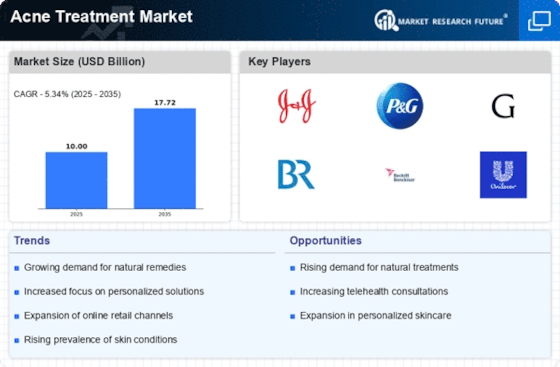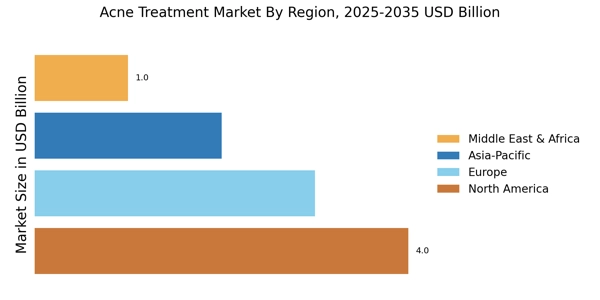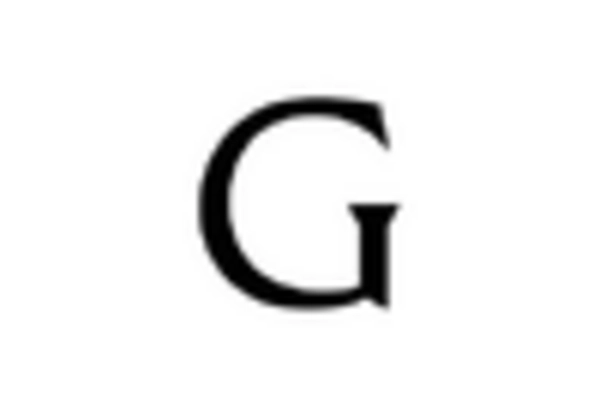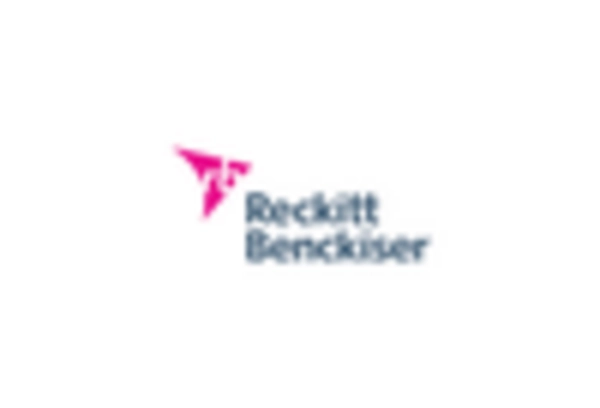Growing Awareness of Skin Health
The increasing awareness regarding skin health and hygiene is a pivotal driver for the Acne Treatment Market. Consumers are becoming more informed about the implications of acne on self-esteem and overall well-being. This heightened awareness has led to a surge in demand for effective acne treatments, with the market projected to reach approximately USD 6 billion by 2026. As individuals prioritize skincare, the Acne Treatment Market is witnessing a shift towards products that not only treat acne but also promote skin health. This trend is further fueled by social media, where influencers and dermatologists advocate for proper skincare routines, thereby driving consumer interest and investment in acne treatment solutions.
Influence of E-commerce and Online Retailing
The influence of e-commerce and online retailing is transforming the Acne Treatment Market. With the proliferation of online shopping platforms, consumers now have unprecedented access to a wide array of acne treatment products. This shift has not only expanded market reach but has also facilitated the emergence of niche brands that cater to specific consumer needs. Data indicates that online sales of skincare products, including acne treatments, are projected to grow at a rate of 10% annually. The convenience of online shopping, coupled with the ability to read reviews and compare products, is driving more consumers to purchase acne treatments online. This trend is reshaping the competitive landscape of the Acne Treatment Market.
Technological Advancements in Treatment Options
Technological advancements are significantly shaping the Acne Treatment Market. Innovations such as laser therapy, light therapy, and advanced topical formulations are becoming increasingly accessible. These technologies offer targeted solutions that are often more effective than traditional treatments. For instance, the introduction of devices that utilize blue light therapy has shown promising results in reducing acne lesions. The market for these advanced treatments is expected to grow, with estimates suggesting a compound annual growth rate of around 8% over the next few years. As consumers seek more effective and less invasive options, the Acne Treatment Market is likely to expand in response to these technological developments.
Shift Towards Preventive Care and Early Intervention
There is a noticeable shift towards preventive care and early intervention in the Acne Treatment Market. Consumers are increasingly recognizing the importance of addressing acne at its onset rather than waiting for severe outbreaks. This proactive approach is leading to a rise in the demand for preventive products, such as cleansers and topical treatments designed for early-stage acne. Market data suggests that the preventive segment is expected to grow significantly, as consumers invest in products that promise to mitigate the risk of acne development. This trend reflects a broader movement towards holistic skincare, where prevention is prioritized, thereby influencing the overall dynamics of the Acne Treatment Market.
Rising Incidence of Acne Among Adolescents and Adults
The rising incidence of acne among adolescents and adults is a critical driver for the Acne Treatment Market. Studies indicate that approximately 85% of individuals aged 12 to 24 experience some form of acne, while a notable percentage of adults continue to face acne challenges well into their thirties and forties. This persistent prevalence creates a robust demand for various treatment options, from over-the-counter products to prescription medications. The Acne Treatment Market is responding to this trend by diversifying its product offerings to cater to different age groups and skin types. As the population grapples with acne-related issues, the market is poised for sustained growth.

















